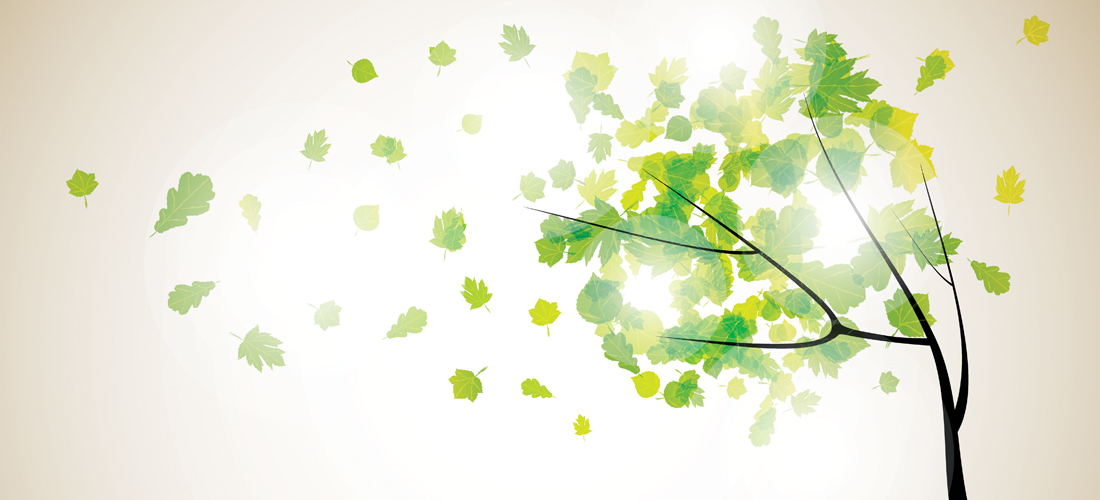Food for the Soul
After Florence, the power to heal began with neighbors helping neighbors, a warm meal, a caring touch
By Dana Sachs
“I’m not used to being the one getting help,” said the woman standing in line for a free meal from the Salvation Army. “I’m used to being the one writing the check.”
At that particular moment, I was working as a relief volunteer, but, like so many of us in Wilmington, Hurricane Florence had also put me on the receiving end of generosity. Offers of help began to arrive a week before the storm hit. The first ones, responding to warnings on the Weather Channel, came in the form of concerned texts and emails. “Our house has (a) basement and you are more than welcome to come stay with us,” said one message from a friend in Raleigh, whom I hadn’t seen in years. Another acquaintance called from Charlotte. I’d only met her once, but she offered to put up my husband, me and our dog. I also heard from people in Atlanta, Virginia, Rhode Island, Washington, D.C. — people I know well and people I barely know at all. They all said the same thing: “Come here.”
We evacuated. The storm chased us so far west that my husband finally said, “At this rate, we’ll end up in California.” We only went as far as Memphis, where we stayed for a week with my mom and stepdad. Throughout the time we were away, we benefited from the kindness of friends, loved ones and strangers. People took us out for meals. Neighbors back in Wilmington checked on our house. Hotel chains waived pet fees and cancellation fees as shifting storm projections kept changing our plans. Customer service agents responded to our requests for help with almost passionate concern. “You’re going through a lot,” said one. “I want to make things easier for you.” And she did.
Despite all sorts of evidence to the contrary, human beings like helping each other. In 2016, after I returned from volunteering with Middle Eastern refugees in Greece, I talked with my friend Paul Wilkes, the founder of Homes of Hope, a Wilmington-based charity that builds orphanages for marginalized girls in India.
“My experience in Greece was not what I expected,” I told Paul. “I knew I’d be doing good there, but I’m surprised that I loved the work so much.”
Paul didn’t seem surprised. “That’s the secret,” he said, laughing. “We don’t help other people because it’s the right thing to do. We help other people because it makes us happy as well.”
And that’s how we heal in times of trouble. Empathy, as much as anything, becomes the balm we use to soothe ourselves. That fact helps explain why, in the midst of hauling mud out of our basements and making insurance claims for roof repairs, people here in Wilmington have gone on a frenzy of volunteering.
“How are you?” I asked an older guy standing in line for a hot meal from Salvation Army.
“I’m tired,” he replied. He was tall, hunched in a ratty T-shirt, his face smudged with dirt and shiny with sweat.
“You had a lot of damage?”
He shook his head. “I’ve been clearing trees at my neighbor’s house.” Then, with a grin, he tugged down the collar of his shirt, revealing a white surgical scar that sliced across his chest. Clearly, he was not in the best of health. “My neighbor’s really old,” he said. “He needed help.”
Stories like these are as common as downed trees in this city. “Can I take a few extra meals?” one woman asked me as she picked up her own free lunch. “The people who live in a trailer park near me in Castle Hayne — they look just pitiful.” My friend Stephanie found herself volunteering with a man whose house had been destroyed. He and his family were staying in a hotel, but there he was at the food line, Stephanie told me, “passing out water bottles to everyone waiting for a hot meal.”
Over at Ebenezer Missionary Baptist Church, a local nonprofit called Support the Port created a one-stop relief center, offering everything from diapers and granola bars to cleaning supplies and baby clothes. One day, my job was to make “Thank You” signs acknowledging help from donors. As I transferred the names scrawled into a notebook to big sheets of poster paper, I noticed that the list included not just organizations like the American Red Cross and Walmart, but also dozens of individuals. One woman brought “three bags of feminine products, clothes, and food,” another “two bags of ice and 14 cans.” They gave what they could give.
At the Salvation Army food truck, people waiting for a box lunch — pulled pork and corn one day; turkey with tortillas and corn a few days later — talked with each other in line. A couple from Rocky Point still hadn’t managed to return to their flooded home. Just in front of them, another woman, alone, stood listening quietly. “And how are you?” I asked her. She looked at the ground and shrugged. “Better than some,” she said, “and worse than others.” I heard the same from Kenneth from Direct TV, who came by our house to fix the cable. “We just flooded a couple of inches,” he said, as if he’d emerged from a car wreck with only a scratch.
“Just a couple of inches?” I exclaimed. That sounded major.
Kenneth disagreed. “A mile from me,” he said, “houses went completely under water.”
I know you’ve heard such stories yourself. With each one, we place our own troubles along the spectrum of disaster. Better than some, worse than others. It’s a strange exercise, comparing our losses, but it’s a sign of our compassion. Our problems become more bearable when we think of the people who suffered more.
But compassion alone does not explain our desire to help. That tired man in the free lunch line, the one who wore himself out cleaning his neighbor’s yard, seemed delighted with his effort, as if his kindness had revived him. Each time we drag someone else’s branches to the street, or donate a roll of toilet paper or a can of peas, we heal ourselves. That’s how we start to regain our footing. b
Dana Sachs’ latest novel, The Secret of the Nightingale Palace, is available at bookstores, online and throughout Wilmington.


